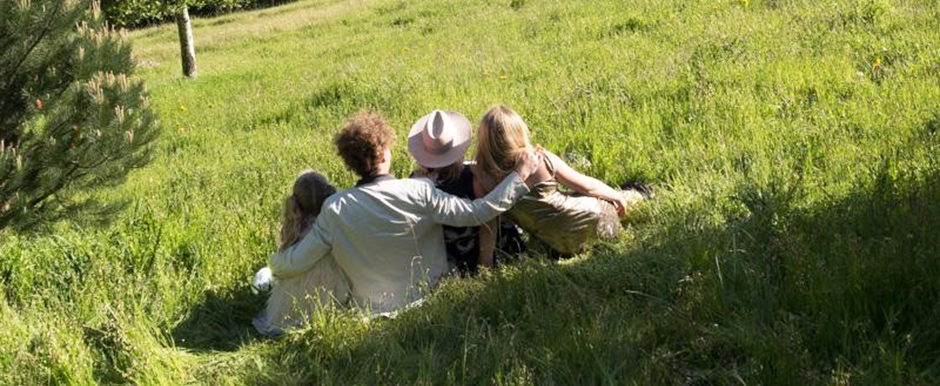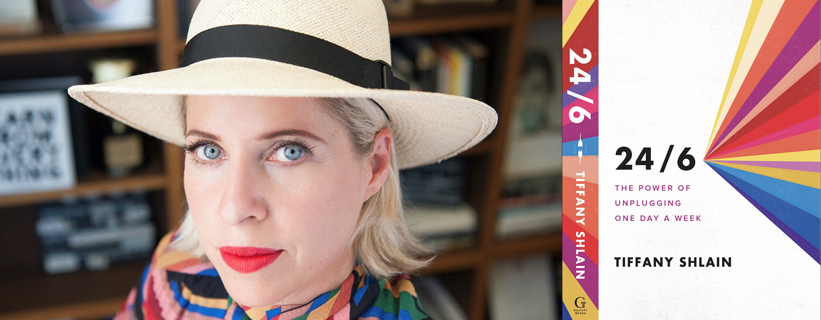Over a decade ago, I needed a drastic change. Within days, my father died and my daughter was born. These life-altering events made me think about the brevity of our time here, and question how I was spending it. I didn’t like where we seemed to be headed, with everyone staring at screens instead of connecting with the people we love right in front of us.
I needed a revolution to transform the situation, and I found it. For twenty-four hours, my family and I went screen-free. Nearly a decade later, we’ve done it nearly every Saturday since. Establishing a weekly Tech Shabbat is the best decision we ever made.
Living 24/6 feels like magic, and here’s why: it seems to defy the laws of physics, as it both slows downtime and gives us more of it. I laugh a lot more on that day without screens. I notice everything in greater detail. I sleep better. It strengthens my relationships and makes me feel healthier. It allows me to read, think, be more creative, and reflect in a deeper way. Each week I get a full reset. Afterward, I’m much more productive and efficient, with positive effects that radiate out to the other six days. It even helps renew my appreciation for all that I have access to online, giving me that Wow, the Internet realization fresh each week. Who would have thought technology could be more potent in its absence?
A weekly day without screens improves our family’s lives, too. Our daughters, Odessa (sixteen) and Blooma (ten), have done this practice most of their lives, and it’s shaped how they interact with technology in extremely beneficial ways. They enjoy their time off screens and look forward to it. It feels like a vacation every week. We look forward to it with the same anticipation, and it provides that same feeling of deep relaxation we get when we go away. Because it expands your sense of time, it makes your day off feel like two days in one. Going screen-free once a week is like having a metaphysical remote control, with a pause button for the 24/7 world, that turns your life back on.
The fact that my family has practiced Tech Shabbat so long surprises people. Ken is a UC Berkeley professor of robotics. I’ve also spent my career exploring the online world, first by establishing the Webby Awards, then as a filmmaker examining how all this connectedness is changing our lives today and will continue to do so in the future. We’re both deeply involved with technology and constantly pushing on its edge. Yet I found great meaning and power in a technology invented several millennia in the past. More than three thousand years ago, the concept of Shabbat (also known as the Sabbath) transformed the world. Before then, time had no pauses: it was day after day after day. Shabbat made it so each week ended with a day off, for everyone, of every social class. The run-on sentence of time got a period, and humankind got a chance to catch its breath and focus.
All these years later, practicing our version of Shabbat helps my family be present with one another, appreciate the small things, daydream, and get a different viewpoint on living. It encourages resourcefulness and recalls a simpler time. Doing something the same day as others all over the world do also reminds us that we are connected to something larger than ourselves, and offers a way to live a more meaningful life. Turning off screens and disconnecting from the online network helps us use tech in a way that prevents tech from using us.
By Tiffany Shlain
Tiffany Shlain is an Emmy-nominated filmmaker, founder of the Webby Awards, and author of the national bestselling book 24/6: The Power of Unplugging One Day A Week, winner of the Marshall McLuhan Outstanding Book Award. She hosts a monthly #ZoomChallahBake and writes a newsletter called Breakfast @ Tiffany’s. Tiffany and her work have been featured in the New York Times, Washington Post, Wall Street Journal, NPR, Elle, on Jeopardy, and at the Museum of Modern Art in New York. For information on her book, baking, films, and her newsletter visit tiffanyshlain.com and follow Tiffany on Twitter, Facebook, and Instagram.


